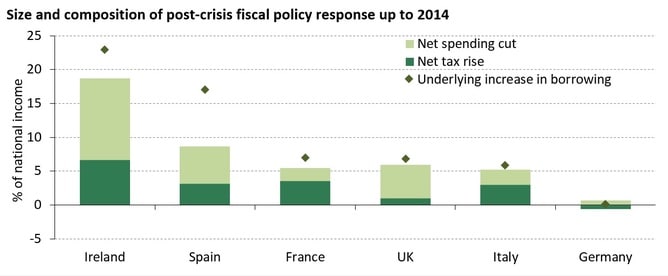Eurozone Economy: Outlook (Near-Term), Problems and Solutions
This is an abridged version of this article. For the full article please see here.
I was in Belgium in 2011-2012, when I witnessed the escalating ferocity with which the sovereign debt crisis undermined confidence and economic activity across the Eurozone. Four years later, in 2016, economic recovery from the crisis continues to remain fragile – with highly lackluster or tepid growth having become endemic in the Eurozone.




